Heat and Your Mason Jars [ 9 ] Top Questions & The Answers
Unedited Image in Featured Image appeared on www.kitchenistadiaries.com
With cooking temperatures ranging from 100 degrees to more than 500 degrees Fahrenheit, you might find yourself wondering how all this heat affects mason jars.
While most mason jars can stand some heat there are some things you probably should not do with your jars.
Let’s dive into a list of the top 9 questions found on google related to heat and mason jars.
How Hot Can Mason Jars Get?
Theoretically a mason jar could withstand temperatures of up to 1400 degrees Celsius or 2550 degrees Fahrenheit, the melting point of glass. However, they are designed to withstand temperatures of 250 to 300 degrees. Once that is exceeded the dangers of breaking begins to increase as the temperature rises.
When canning, mason jars often reach temperatures of between 116 to 121 degrees Celsius or 240 to 250 degrees fahrenheit.
When heating in a microwave the temperatures of the food or liquid being heated can reach or exceed 500 degrees fahrenheit on the highest setting. This heat is then leached into the glass which is holding the food or liquid. With that in mind it is important to minimize heating time to only that necessary.
When following some of the ultra popular mason jar desserts which are baked in the oven temperatures range from 350 to 500 degrees Fahrenheit.
What Temperature Can Mason Jars Withstand?
Generally a Mason Jar is heated to around 250 degrees Farenheight, however numerous instances show them being used for baking at temperatures up to 500 degrees Farenheight.
To put that into perspective an ordinary sheet of paper will burst into flames at around 480 degrees fahrenheit.
Can Mason Jars Handle Heat?
Mason Jars are able to withstand most normal heat that they will encounter while in a kitchen. However, heating them with a blow torch or similar will damage them or cause them to shatter.
It is important to remember that mason jars are made from glass which is very inflexible. Quick changes in temperatures either in heating up or cooling can cause the glass to shatter.
You should always heat both your jars and the substance you are going to be adding to them before beginning your canning.
Can I Pour Hot Coffee into a Mason Jar?
Hot coffee is normally held at temperatures of around 190 to 200 degrees fahrenheit. It is generally safe to pour your coffee into a mason jar as far as the glass goes.
It is likely though that the glass will heat up and be difficult for you to hold.
This is due to the physical properties of glass transferring the heat through fairly quickly.
Will Hot Water Break a Mason Jar?
In most cases hot water will not break a mason jar. The exception to this is if the jar has been held at a very cold temperature for some time. If you attempt to thaw a jar containing frozen foods in hot water it will most likely shatter.
Can You Bake inside of a Mason Jar?
This is a controversial topic, however, yes you can bake inside of a mason jar. A quick search on the internet will net you numerous recipes such as this pound cake in a mason jar.
Are Mason Jars Heat Resistant?
Due to the glass in mason jars they are able to resist some heat. However, they will quickly heat up if they contain a very hot substance. This is frequently encountered when you microwave a mason jar. If care is not used this could result in burns. Most mason jars are designed for temperatures of around 300 degrees Fahrenheit but can survive in excess of 500 degrees Fahrenheit with minimal issues.
How do you Heat Jars for Canning?
Heating jars for canning involves several steps. You should first heat the jars in boiling water for at least ten minutes to sterilize them. During this you will also want to heat the lids as well. This is true whether you are using a hot pack or a cold pack canning method.
Once packed with food and the tops are applied you will return the jars to a water bath or pressure canner and heat them again this time for a specific amount of time based on the particular recipe you are using.
A high output gas burner is the best method for reaching the temperatures desired on these very large pots.
Does a Mason Jar Seal When Hot Liquid Cools?
A properly sealed mason jar is produced when a jar and its contents are heated. This causes air and contents in the jar to expand forcing air inside of the jar out under the lid.. Once removed from heat and allowed to cool the contents and remaining air in the jar contract back to their normal size.
This resulting expansion and contraction creates a very strong suction due to the vacuum left behind. This vacuum is what causes a jar’s lids to remain intact even when the ring is removed from the jar and also what causes the small button in the lid to suck inwards indicating a sealed jar.
Conclusion
Hopefully these quick answers contained the information that you were looking for. If not comment below with what you would like to see added or any other questions that you would like us to look into for you.
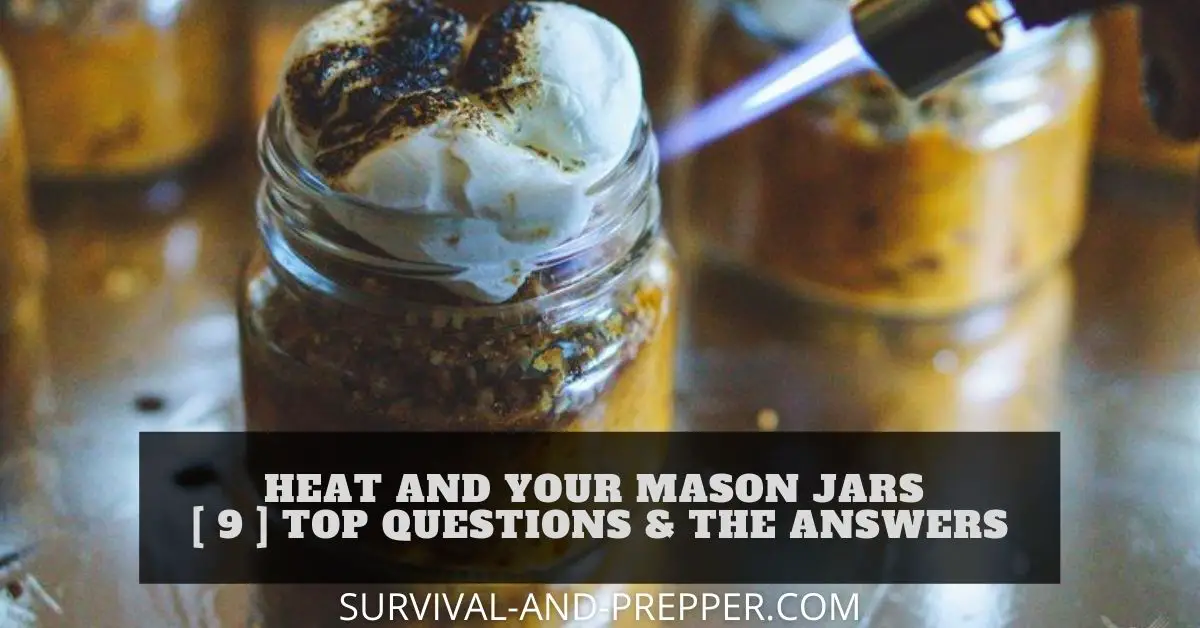
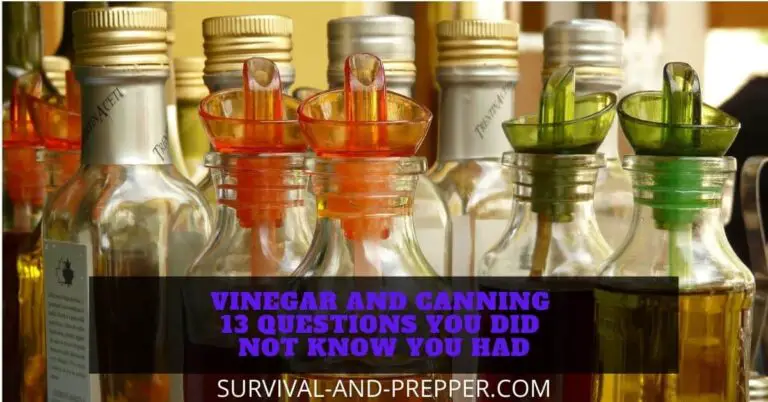
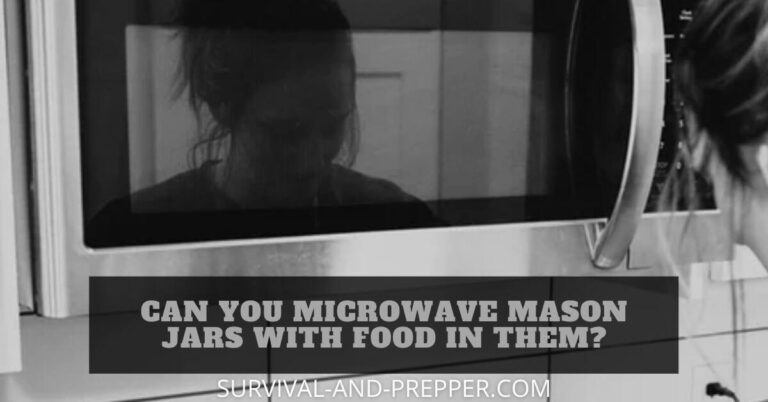
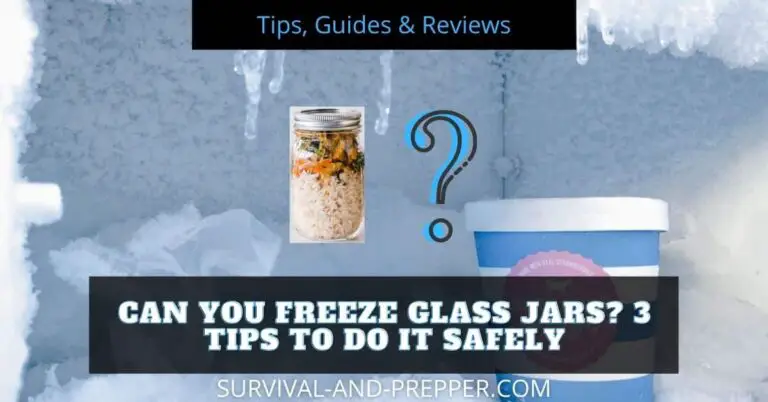

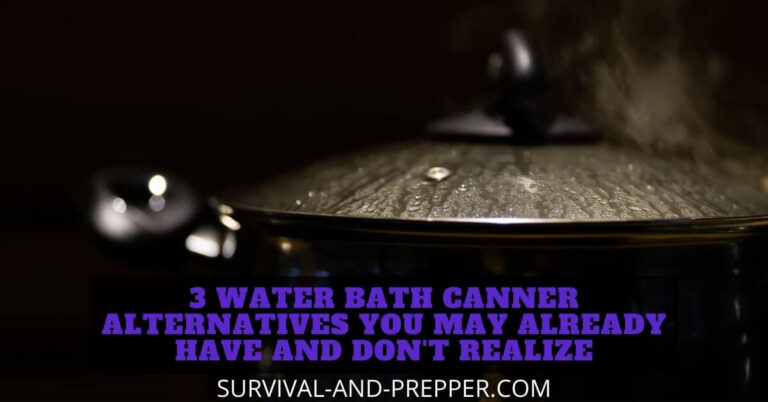

2 Comments
Comments are closed.